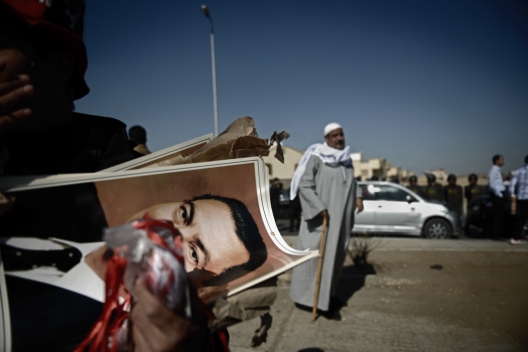
Three years after an uprising that ousted former Egyptian president Hosni Mubarak, the verdict is in, and the “Mubarak trial” is over for now. The former dictator, facing charges relating to the deaths of over 800 protesters in 2011, could be free to walk. On November 29, the judge presiding over the case dropped the charges of ordering the killings of protesters on a technicality. The verdict, however, can be appealed.
The words “Mubarak Trial” likely evoke images of the court, the bars of the defendants’ cage, Mubarak being transported by ambulance on a stretcher to yet another session in a trial that has lasted several years. Accompanying him in the defendants cage are his sons, Gamal and Alaa, the former interior minister, Habib al-Adly, the supporters, the families of killed protesters. On this Saturday morning, things were slightly different.
Earlier this morning, as I arrived outside the court right before the verdict was issued, I thought I would be able to cover both sides — the supporters of Mubarak and the families of protesters killed during the 2011 Egyptian uprising. The families of the dead protesters were nowhere to be found. “They are gone,” said one supporter, angered by the question. According to other reporters, a few families were there. They fainted when they heard the verdict.
Mubarak’s supporters, on the other hand, were talking to TV channels, dancing, shouting and posing for pictures. I even heard a few cursing the uprising and the protesters who were part of the January 25th Revolution that led to Mubarak’s ouster. And as I caught a glimpse of the police officers outside the court, they seemed happy to have heard the verdict. The victims’ families left a notable space in their absence, likely mourning the verdict far from the fray of the court.
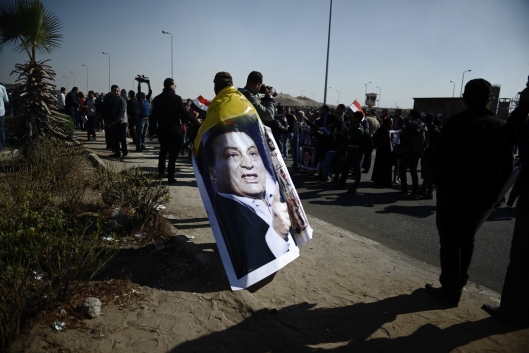
A supporter of Mubarak outside the court after a verdict was issued.
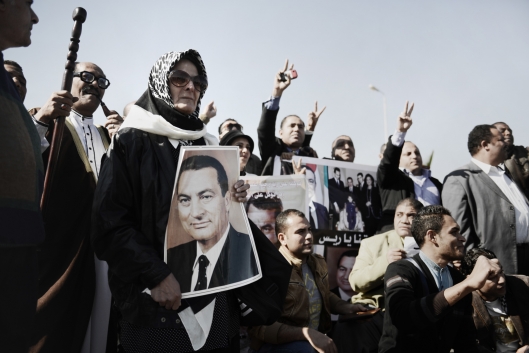
Supporters of Mubarak outside the court after the verdict was issued.
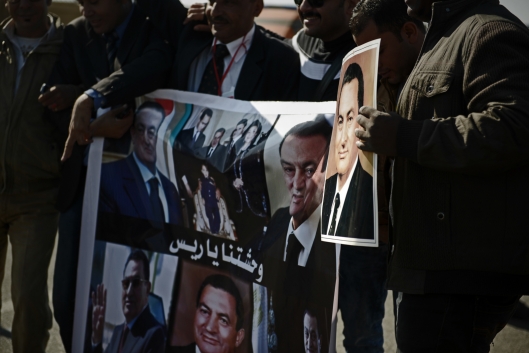
Supporters of Mubarak outside the court after the verdict was issued.
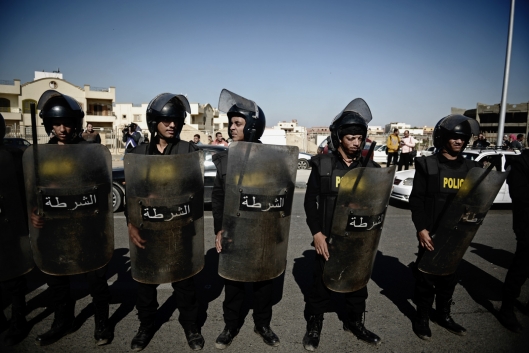
Egyptian police personnel outside the court after the verdict was issued.
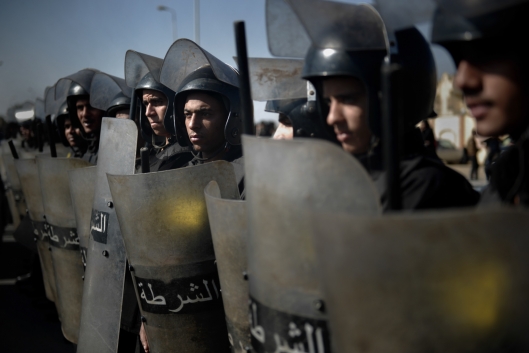
Egyptian police personnel outside the court after the verdict was issued.
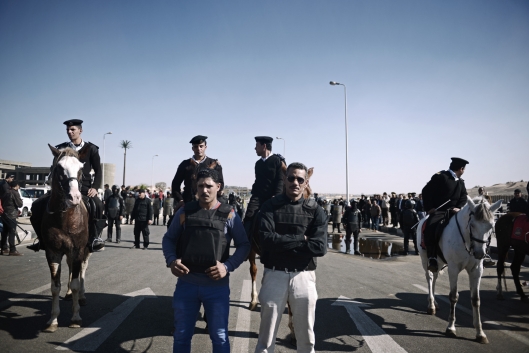
Egyptian police personnel outside the court after the verdict was issued.
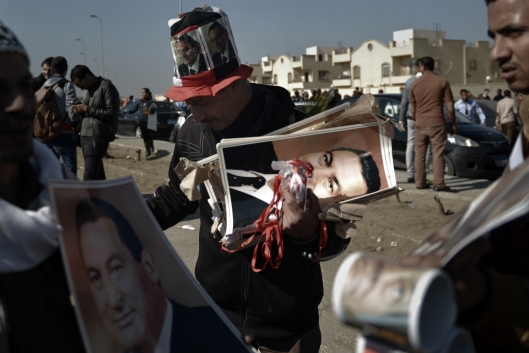
Street vendors sell portraits of Mubarak prior to the verdict outside the court.
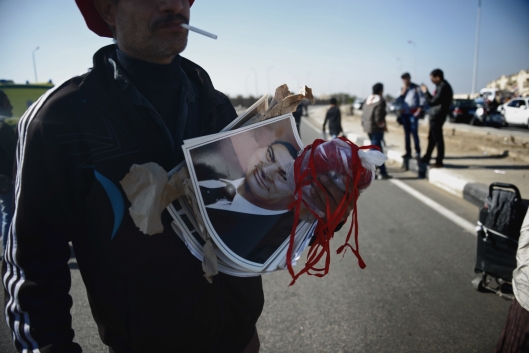
A street vendor sells portraits of Mubarak prior to the verdict outside the court.
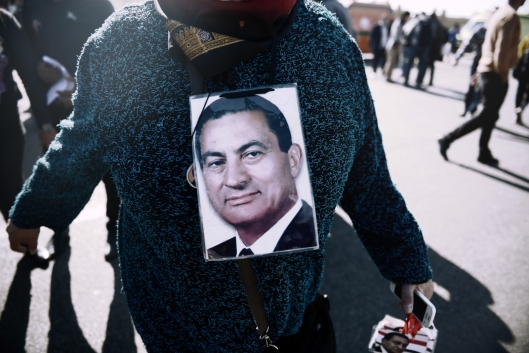
A supporter of Mubarak outside the court after the verdict was issued.
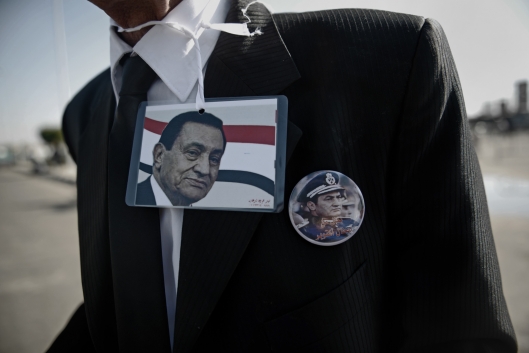
A supporter of Mubarak outside the court after the verdict was issued, wearing two badges bearing the ousted president’s photo.
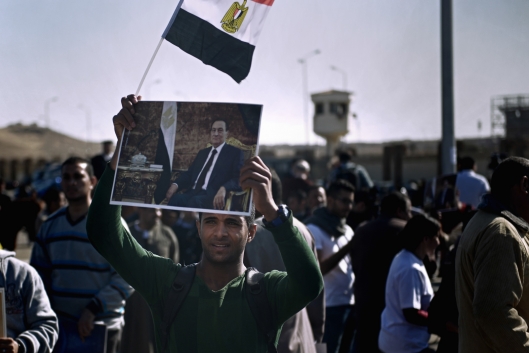
An Egyptian protester holds a portrait of Mubarak after the verdict was issued.
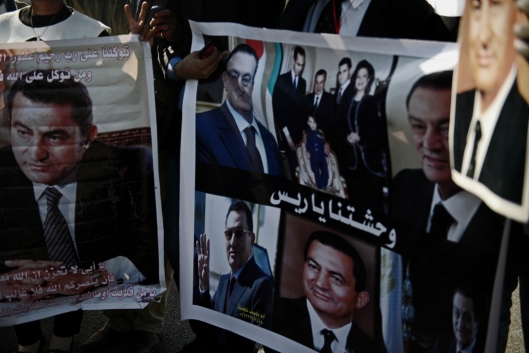
Supporters of Mubarak outside the court during the trial hold up posters showing the Mubarak family, including the ousted president’s wife, Suzanne Mubarak, and his sons, Alaa and Gamal, also acquitted with the November 29 verdict.
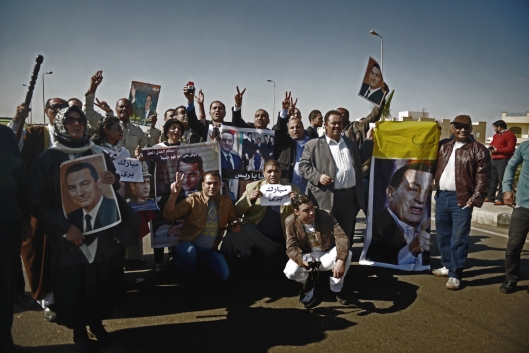
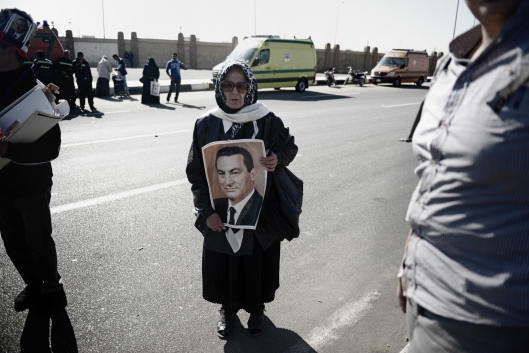
“I was sure Mubarak was going to be acquitted. God would not accept injustice against him because he was opressed by all the traitors of the so-called January 25th revolution,” said 64-year-old Amina Maghawry.
![The Mubarak Verdict: A Firsthand Account [Photo Essay]](https://www.atlanticcouncil.org/wp-content/uploads/2014/11/20141129Mubarak.jpg)